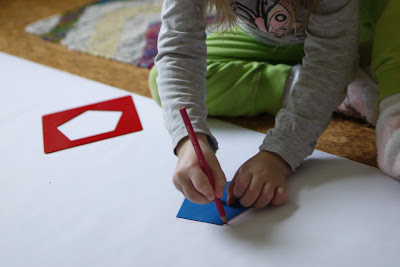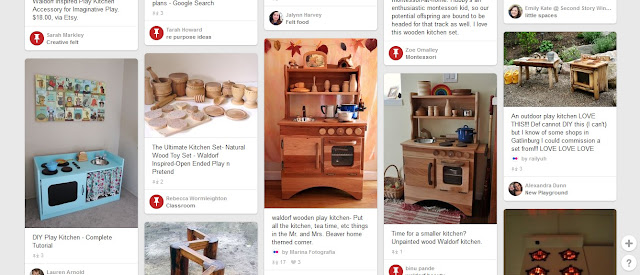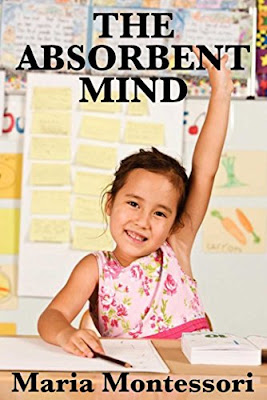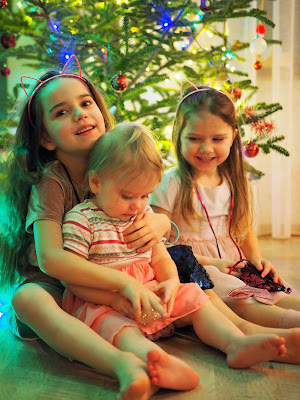Our bilingual 18-month-old
Here and there I have mentioned for a long time already, that Adelaide's language is developing a lot, that new words are coming every day.. But interestingly, as I checked now, the last time that I really wrote more about her language development, was many months ago - in August! That was the time, I believe, when it took off. So, if you haven't, then read that post (here), where I explain as well - what can be counted as a real word and what can't (so I'm not going to repeat it again here).
She had those 13 words, maybe a couple of others, but then there was a little pause. And then, I don't know, a month or two ago, some bigger jump happened, she got so many new words in a short period of time, they were changing and switching (the way she spelled one word would change) all the time, and this fast developing is continuing still - we are talking a lot with her, she gets new words all the time.
So I tried to write them all down, to make a countdown for the 18-month mark. (She is turning 18 months in precisely a week! :) It also was interesting to actually check, does she have more Estonian or Latvian words. At some point, like when she had around 20 words, then Latvian was dominating - she had 14 Latvian and 6 Estonian words. But that shifted quickly, and as you can see from the list, now they are totally 50/50, which makes me really happy.
So, yes, our child is bilingual. (We sometimes still speak English to each other with Mr. Husband, but less and less it happens with Adelaide present (then we talk Estonian, Estonian is the family language), so she is not really exposed to English at all and doesn't react to it either. Which is a conscious decision, children in today's Estonia have no problem learning English at a very early age, and for less confusion we chose her to be bilingual and not multilingual.)
And I think it is so cool to be bilingual from the very beginning! Some people tend to see it as a complication or a difficulty to overcome, but I see it only as a positive gain and a great chance. Not knowing more than 1 language in Estonia and Latvia anyway is a really rare thing, it would take some time to find a person like that.. As most of people speak at least Russian (older generation), everyone speaks English (at least the younger generation), plus German and other languages, it's not that uncommon to know more than 2-3.
I, for example, besides Latvian speak English and Estonian quite fluently, plus can manage in Russian, which has gotten a bit rusty now, but I used it a lot, when I was working in a pharmacy. I have studied German for many years, but due to no practice I can't really speak it (understood it enough to order a babywearing jacket from a German internet shop though).
Mr. Husband is almost bilingual from birth, at least he has been exposed to Latvian since birth (his mother being Latvian), but he would speak it very, very little, when we met. Now his Latvian is already a lot better. He speaks English, and German better than I do. (But no Russian.)
There are many myths around bilingualism, most of people, when I happen to talk about Adelaide and her talking, still mention them - like that she would start talking later or be messing up the languages at first. (Those are the most popular ones.) However, there has been a lot of research done around this subject, and those particular myths have been discovered to be false. There is no such rule, that bilingual children would start talking later. Children can start talking earlier or later for other different reasons. Bilingual children should fit in the same norms as children with one language - meaning, if at 18 months a child should have 10-50 words, then bilingual child will have the same amount of words, but they will be summed from both languages. (Until some point, when the child really learns both languages perfectly, and in the end has (almost or) 2 times more words.)
Also, mixing up languages is not a thing. Simply - at first the child uses whichever word he knows, doesn't matter the language, until the time, when both languages have developed enough to be able to use only one. And even then, if a child puts in an occasional word from the other language, it doesn't mean they are messed up - exactly the opposite - in this very good article about bilingualism is explained:
When children use both languages within the same sentence or conversation, it is known as “code mixing” or “code switching”. Examples of English-French code-mixing: “big bobo” (“bruise” or “cut”), or “je veux aller manger tomato” (“I want to go eat..”). Parents sometimes worry that this mixing is a sign of language delay or confusion. However, code mixing is a natural part of bilingualism. Proficient adult bilinguals code mix when they converse with other bilinguals, and it should be expected that bilingual children will code-mix when speaking with other bilinguals.
Many researchers see code mixing as a sign of bilingual proficiency. For example, bilingual children adjust the amount of code-mixing they use to match that of a new conversational partner (someone they’ve never met before who also code mixes). It has also been suggested that children code-mix when they know a word in one language but not the other. Furthermore, sometimes code-mixing is used to emphasize something, express emotion, or to highlight what someone else said in the other language. For example, “Y luego él dijo STOP” (Spanish mixed with English: "And then he said STOP!"). Therefore, code-mixing is natural and should be expected in bilingual children.
Actually, in the research that has been done, it has been found, that being bilingual has many, many benefits, for example - that being bilingual improves the brain’s executive function, that bilingual kids exercise cognitive flexibility; that is, they are better at focusing attention on relevant information and ignoring unnecessary distractions; that it's easier later on to learn more languages etc etc - here is one article on this subject, but there are many, many more.
Of course, each case, each family and each child is different - some children have more difficulty with language for various reasons, and then bilingualism can add an extra challenge.
But as I finally get to the list of Adelaide's words.. I think we can exhale with relief, as her language seems to develop very well for her age, and for now I don't see 2 languages giving any difficulty.
So all the words Adelaide has at the moment, at (almost) 18 months, which I could recall:
Latvian words:
- lampa (lamp)
- zeķe (sock)
- kurpe (shoe)
- pēda (foot)
- kāja (leg)
- papēdis (heel)
- grāvis (ditch)
- bērns (child)
- ēd (eats)
- sēž (sits)
- akmens (rock)
- kūka (cake)
- acs (eye)
- auss (ear)
- tante (aunt)
- apēsts (eaten)
- slapjš (wet)
- mamma (mom)
- lauva (lion)
- apaļš (roundy)
- kātiņš (stem)
- papīrs (paper)
- atā atā (bye bye)
- lapa (leaf)
- cepure (hat)
- nāc (come)
- karote (spoon)
- nazis (knife)
- ass (sharp)
- paklājs (carpet)
- vaigi (cheeks)
- mats (a hair)
- peļķe (puddle)
- kaka (poo)
- veel (more)
- pai pai (caress)
- naba (belly button)
- Āmen (Amen)
- kukk (rooster)
- part (duck)
- õue (outside)
- auto (car)
- aitäh (thank you)
- pall (ball)
- emme (mom)
- ainult piss (only pee)
- kõht täis (stomach full)
- kama (kama)
- kurk (cucumber)
- pats (braid, pigtail)
- kukkus (fell down)
- kass (cat)
- issi (daddy)
- kaks (two)
- appi (help)
- buss (bus)
- puu (tree, log)
- kast (box)
- kott (bag)
- kaus (bowl)
- kalli kalli (hug)
- ka (too, also)
- või (butter)
- katki (broken)
- lähme (let´s go)
- auk (hole)
In the language blog that I like was said, that somewhere after the child has reached around 50 words, an explosion of words usually occurs - new words coming in not every day, but every hour, and starting to put words together. It probably happens then, when the child has gathered an initial base of words to start working with.
I'm not sure, if the explosion is happening to Adelaide, maybe not quite yet.. Same time, she has started to put her first words together! And she is making her first 2 word sentences!
Two days ago she did for the first time, or the first time that we noticed - she said:
zeķe kukkus! (sock fell down)
So, yes, putting both languages together for now, which is totally normal.
She also said today: üks akmens, kaks akmens (as I wrote in my last post), which also is 2 words put together. And also - she says a lot of short sentences with words also or too (ka in Estonian) and veel (more in Estonian/Latvian), like: ee ka kass, ee ka kass (which actually could count almost as 3 word sentence, if ee means see in Estonian) - that too cat, that too cat! This she says a lot, about everything that is repeating. Or: vēl lapa. (More leaf.)
So exciting this is! :)
And, well.. One more little thing. Recently she finally has started saying Issi (daddy)! :) Mamma (mom) she is saying for a bit longer time, but not very long, maybe a month or two. Mamma was a bit messed up at first, it was hard to understand, what does she actually mean or understand with it.. If Issi is the only version of daddy we are using (I'm just saying this Estonian word, when I talk in Latvian too, I don't use any other word for daddy), then Mamma we use in Latvian and Emme in Estonian. At first she said emme, but not directly to me, more like when talking about me, or calling for help.. Then I taught her to say Mamma, she was a bit confused. Now she knows that I am Mamma for sure, she repeats it many times a day. :) Not sure about this Emme though.. I still added it in the list.
Yes, that's another thing - for now - she only has each word in only one language. (Emme would be an exception, but she probably has a little bit different meanings for those words.) For example, she was saying sort of bumba at first (ball in Latvian), but then it switched into a very clear pall (ball in Estonian), and she hasn't said the Latvian word since. Same has happened with a couple of other words. I'm assuming it's totally normal for now, just excitedly waiting, when will appear the first word that she will use in both languages and switch between them! :)






Comments
Post a Comment